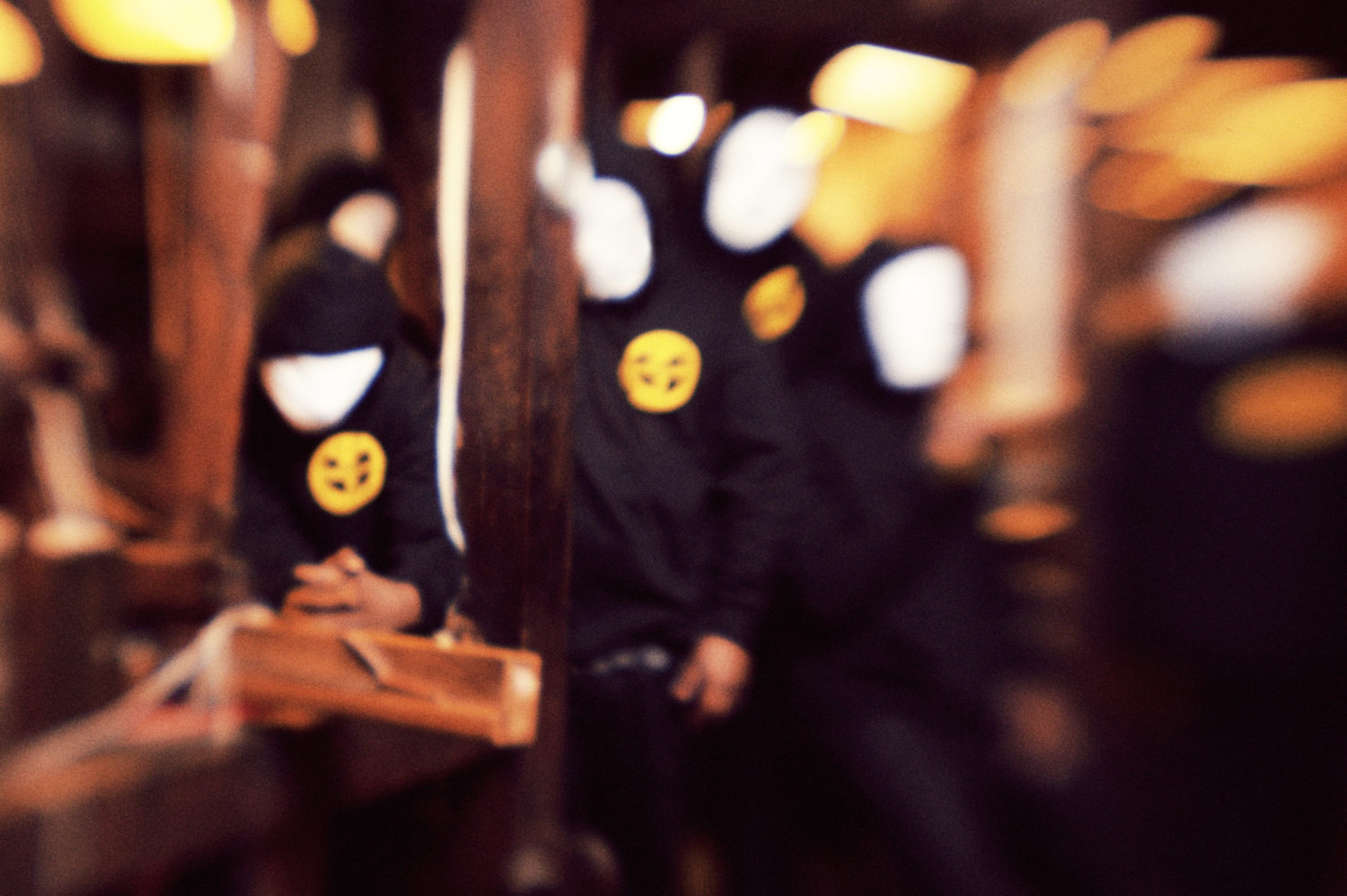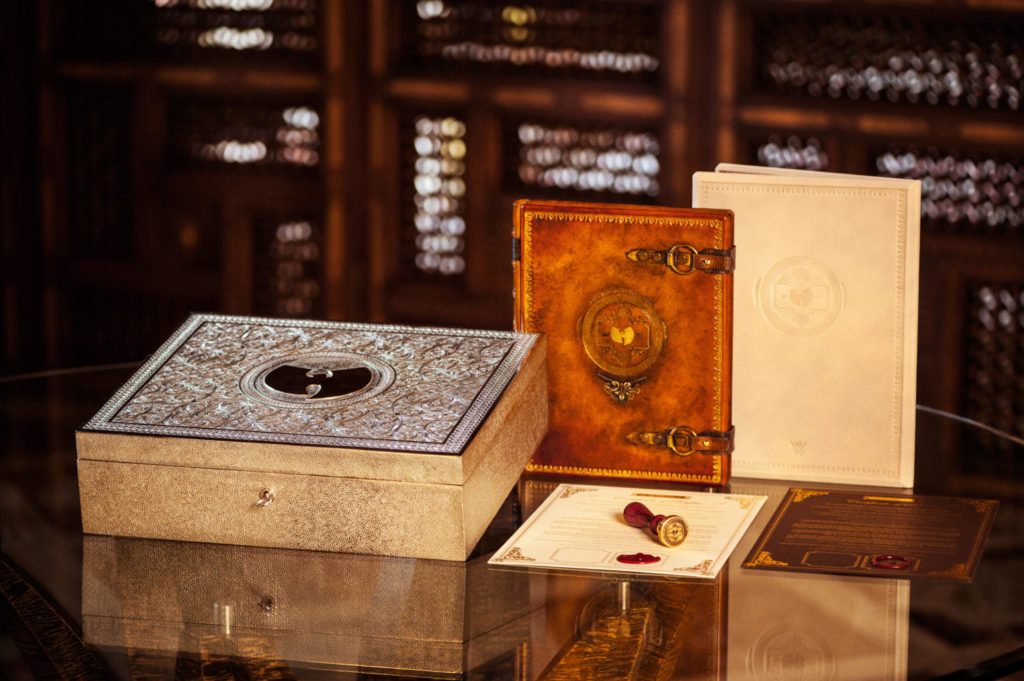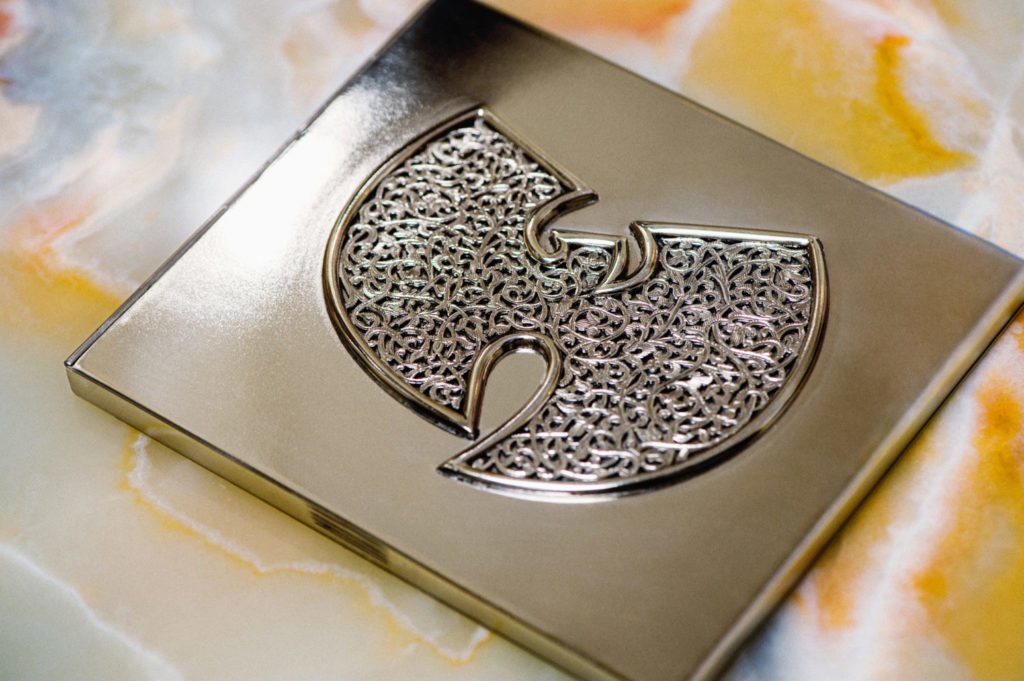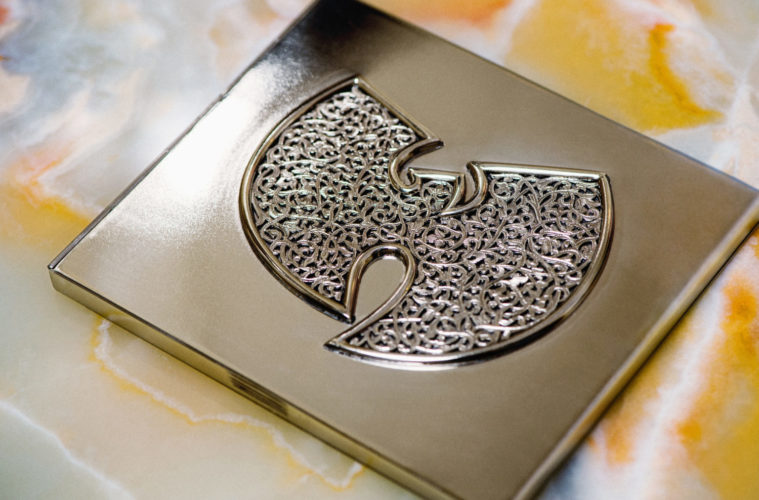Nearly 30 years have passed since the Staten Island-based Hip-Hop dynasty Wu-Tang Clan released its debut album Enter The Wu-Tang (36 Chambers). While some might not remember the fall of 1993, in 2022 the relevance of Wu-Tang Clan still remains deeply recognizable in Hip-Hop, contemporary art and internet culture.
Within its iconic debut, Enter The Wu-Tang (36 Chambers) sonically blended audio samples from obscure Kung Fu films over gritty, aggressive beats. The album is fueled with intelligent lyrics rich with wit and drenched in a familiar, yet unprecedentedly detailed slang.
By way of this poetic art form, the voices of nine young men fiercely struck a vein within a global hip-hop community that is still hemorrhaging 29 years later.
Seemingly unaware of the adage that claims Father Time is undefeated, on the evening of Friday, Sept. 30, Wu-Tang arrived at FivePoint Amphitheater in Irvine, Calif. to demonstrate their verbal mastery to eager listeners.

Wu-Tang Clan performs at FivePoint Amphitheater in Irvine, Calif., on Friday, Sept. 30. (Evan Lancaster/IW)
Co-headlining with Nas and special guest BustaRhymes during the NY State Of Mind Tour, Wu-Tang performed some of the group’s most well-known tracks including Reunited, C.R.E.A.M. and Protect Ya Neck, which RZA claimed to be the first Wu-Tang Clan song ever recorded.
In terms of members, only one of the group’s nine original members has passed in the years since the group’s first album. Ol’ Dirty Bastard – born Russell Tyrone Jones – affectionately known by his moniker’s acronym O.D.B, passed away in 2004.
Only to be replaced by none other than the late rapper’s eldest son, Barson Unique Jones, who raps under the moniker Young Dirty Bastard, aka, Y.D.B.
The sight of thousands of Wu-Tang fans, with outstretched arms proudly displaying the unmistakable “W” logo with their hands, rapping in unison the three-decade-old lyrics, 3,000 miles from the Shaolin soil where the timeless rhymes were first embodied, speaks to the group’s undying longevity.
It could also be translated into a simple fact; Wu-Tang is forever.

Wu-Tang Clan // (C) Ilja Meefout
While the concept of forever may seem out of reach, in its quest for music immortality, Wu-Tang has been metaphorically etching its well-known “W” emblem into the annals of art and internet history – with the help of the blockchain.
In a not-so-metaphorical saga that began in 2015, which involves the American federal government, securities fraud, cryptocurrency, and the sale of the most expensive album ever – Wu-Tang Clan’s Once Upon A Time In Shaolin – Wu-Tang Clan may now be closer to forever, than ever before.
Produced in secrecy by RZA and producer Cilvaringz, more than a decade ago, Once Upon A Time In Shaolin is the seventh official Wu-Tang Clan studio album, but was never publicly released.
Instead, upon its completion, RZA and Cilvaringz opted to only print a single physical copy of the two-disc, 31-track album, which was kept in a hand-carved nickel-silver case, and a manuscript, and certificate of authenticity.

Once Upon At Time in Shaolin // (C) Ilja Meefout
RZA and Cilvaringz released a joint statement on their website Scluzay/Ezclziv giving some context to their approach, specifically seeking to avoid “mass replication” in an effort to shift attitudes in both the music industry and the contemporary art world:
“By adopting an approach to music that traces its lineage back through the Enlightenment, the Baroque and the Renaissance, we hope to reawaken age old perceptions of music as truly monumental art. In doing so, we hope to inspire and intensify urgent debates about the future of music, both economically and in how our generation experiences it. We hope to steer those debates toward more radical solutions and provoke questions about the value and perception of music as a work of art in today’s world.”
In 2015, Once Upon A Time In Shaolin was originally purchased for $2 million during a private auction by infamous “Pharma Bro” Martin Shkreli. A few years later, in 2018, the album was confiscated by the Department of Justice when Shkreli was convicted of securities fraud, after he intentionally raised the price of his AIDS drug Retrophin from $13.00 to $750 per-pill. He was sentenced to seven years in prison. He was released on September 14.
As a part of Shkreli’s sentencing, the DOJ ordered Shkreli to forfeit $7.4 million in assets – and eventually used the album as collateral.

Jewel case for Once Upon A Time In Shaolin //(C) Ilja Meefout
In July 2021, the New York State Department of Justice announced that it sold the unreleased album to satisfy Shkreli’s debt. However, the contract of the sale limited the DOJ’s ability to name the buyer at the time of purchase – and price.
“Through the diligent and persistent efforts of this Office and its law enforcement partners, Shkreli has been held accountable and paid the price for lying and stealing from investors to enrich himself. With today’s sale of this one-of-a-kind album, his payment of the forfeiture is now complete,” U.S. Attorney Kasulis said.
The story of Once Upon A Time In Shaolin seemingly ends there – until it doesn’t.
In October 2021, PleasrDAO, a decentralized autonomous organization, came forward to announce their $4 million acquisition of Once Upon A Time In Shaolin. With PleasrDAO’s purchase, the album, which was purchased with cryptocurrency, also received a Web3 upgrade – a digital token of ownership – also known as an NFT.
After the purchase, PleasrDAO, a 75-member group of early Web3 adopters, NFT artists, and digital collectors added a blog post to its website, detailing the mission behind their purchase of this iconic 1-of-1 album.
Written by Jamis Johnson, PleasrDAO’s Chief Pleasing Officer, the blog post recaps Johnson’s experience of listening to the album for the first time and underscores the importance of this opportunity for both Wu-Tang, its fans and internet culture.
“Once Upon a Time in Shaolin in many ways is the OG NFT before NFT technology had made its way into the zeitgeist. It was their magnum opus, intended to push boundaries on what music could be as an art form,” Johnson wrote. “We believe the next chapter in the incredible story of this album should be Web 3.0 native. Although we are bound by the legal agreement underpinning this work of art and may not be able to duplicate and share the music digitally, we firmly believe there are ways to share this musical masterpiece with the world.”
In an effort to get a status update from PleasrDAO on what’s next for the album, Irvine Weekly reached out to Peter Scoolidge, an attorney that represented PleasrDAO in the purchase of the album from the federal government.
“A documentary is currently in the works for this story so we are not able to comment any further on it for the time being,” Scoolidge wrote to Irvine Weekly.
For now, Wu-Tang fans will have to continue to wait for their chance to hear Once Upon A Time In Shaolin, but Johnson is optimistic it will be around for a while.
“A lot of things in life are temporary, fleeting, impermanent. But remember this – just like our blockchain, Wu-Tang is forever.”
Advertising disclosure: We may receive compensation for some of the links in our stories. Thank you for supporting Irvine Weekly and our advertisers.

